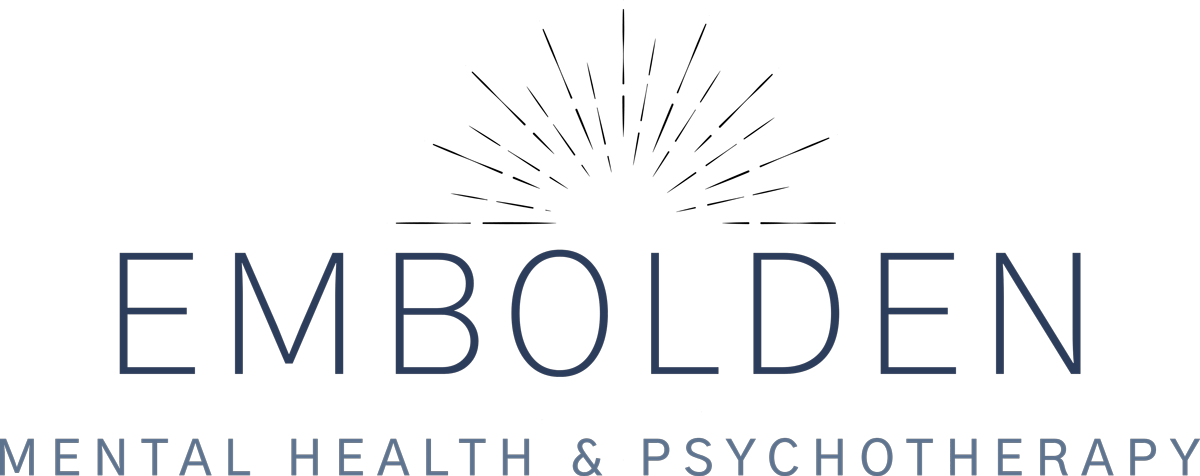Reclaiming Your Life After Service: Navigating PTSD and Trauma as a Veteran
Being a veteran means you’ve faced experiences that most people can only imagine. Your strength, dedication, and courage are truly remarkable.
However, returning to civilian life can sometimes feel like stepping into a whole new battlefield, especially when grappling with PTSD and trauma. If you’re struggling to reclaim your life after service, remember, you’re not alone, and it’s absolutely okay to reach out for help.
At Embolden Mental Health and Psychotherapy, we recognize that navigating these challenges is no easy feat. Our mission is to support you in regaining control and finding peace in your life, one step at a time, through compassionate virtual therapy available across Ontario. Let’s embark on this journey together!
Understanding PTSD and Trauma in Veterans:
First off, let’s talk about what PTSD actually is. Post-Traumatic Stress Disorder is a mental health condition that can develop after experiencing or witnessing a traumatic event. For veterans, this could be anything from combat situations, loss of comrades, or even non-combat-related incidents during service.
It’s more common than you might think, around 10% of veterans experience PTSDat some point, and that’s not even counting those who might struggle with related trauma but haven’t been formally diagnosed.
Signs of PTSD:
The signs can be subtle or glaring. You might find yourself grappling with flashbacks, haunted by nightmares, or tossing and turning at night. Perhaps you're always on edge, easily startled, or feeling emotionally numb.
Other signs of PTSD in veterans may include:
- Trouble focusing
- Feeling irritable or having angry outbursts
- Avoiding anything that reminds you of the trauma
- Experiencing guilt or shame
- Forgetting things more often
- Physical issues like headaches or stomach problems
PTSD can make day-to-day life feel like walking through a minefield, where any small trigger could send you spiralling. Recognizing these signs is the first step to reclaiming your life and starting the journey toward healing.
The Journey to Reclaiming Your Life
The truth is, no one should have to go through this alone. Reaching out for help is not a sign of weakness, it’s a courageous step toward taking back control.
It’s completely normal to feel hesitant. Stigma around mental health can make it hard to ask for support, but remember, many veterans have walked thispath before you and found hope on the other side.
Therapy can be a lifeline. It’s not just about talking; it’s about learning to navigate the maze of your emotions, understanding your triggers, and developing coping strategies that work for you. The right therapist can help you unpack the heavy load you’ve been carrying and support you in finding a way to move forward.
Virtual Therapy as a Solution
You might be thinking, “But I’m not comfortable going to a therapy office, and I don’t have the time.” That’s where virtual therapy comes in. It’s therapy, but on your terms. You can join a session from the comfort of your home, your car, or anywhere you feel safe. It’s private, convenient, and flexible.
At Embolden Mental Health and Psychotherapy, we specialize in virtual therapy for veterans across Ontario. Our approach is tailored to your unique experiences. We use evidence-based practices like Cognitive Behavioural Therapy (CBT) and Eye Movement Desensitization and Reprocessing (EMDR) to help you process trauma and manage symptoms. We’re here to help you find a path to recovery that feels right for you.
Coping Strategies for PTSD and Trauma
Not quite ready for therapy? While we highly encourage it, we understand that the decision takes time. In the meantime, here are several ways you can support yourself:
1. Build a Strong Support System
It can be incredibly healing to surround yourself with people who understand what you’re going through. This support can come from family, friends, or other veterans. Connecting with others who have had similar experiences can provide comfort and reduce feelings of isolation.
2. Practice Mindfulness and Relaxation Techniques
Mindfulness and relaxation techniques, such as deep breathing exercises, meditation, and grounding techniques, can help you stay connected to the present moment and reduce anxiety. These practices can help calm your nervous system and provide a sense of control when emotions become overwhelming.
3. Establish a Daily Routine
Creating a structured daily routine can bring a sense of stability and normalcy to your life. Having regular activities planned out, whether it’s a morning walk, meals at set times, or scheduled relaxation, can provide a sense of predictability and help reduce anxiety.
4. Engage in Physical Activity
Exercise can have a powerful impact on mental health. It doesn’t have to be anything intense, even a daily walk, yoga, or light stretching can release endorphins that improve mood and reduce stress. Finding an activity you enjoy and making it part of your routine can make a big difference.
Reconnecting with Your Identity Beyond Service
It’s also important to remember that you’re more than your service. You have passions, interests, and a vibrant life waiting beyond the uniform. Reconnecting with those parts of yourself can be incredibly healing. Maybe you loved art, music, or hiking before service. Rediscover those activities.
Finding a new purpose is another crucial step. Whether it’s volunteering, mentoring other veterans, or picking up a new hobby, having something to focus on can provide a new sense of direction. And don’t underestimate the therapeutic power of sharing your story. Speaking with others who’ve been through similar experiences can be a powerful way to process your own journey.
How to Get Started with Therapy
Starting therapy can feel intimidating, but you don’t have to jump in all at once. It’s okay to have questions, concerns, and even doubts. At Embolden Mental Health and Psychotherapy, we’re here to answer those questions and guide you through the process.
Our first session is all about getting to know you, no pressure, no judgment. We’ll talk about what’s been going on, what your goals are, and how we can work together to help you get there. It’s a team effort, and you’re in the driver’s seat.
Conclusion
Reclaiming your life after service isn’t an easy journey, but it’s a journey worth taking. You’ve already shown incredible strength in serving your country. Now, it’s time to show that strength in reclaiming your peace and joy. If you’re ready to take the first step, we’re here to walk beside you every step of the way.
Thank you for your service, and for your bravery, both on the field and in seeking help. If you’re ready to start, reach out to us at Embolden Mental Health and Psychotherapy. We’re here to help you reclaim your life, one day at a time.
SHARE THIS POST:
OUR RECENT POSTS:
Reclaim Your Peace of Mind
Book your free consultation now and discover the support you deserve.







